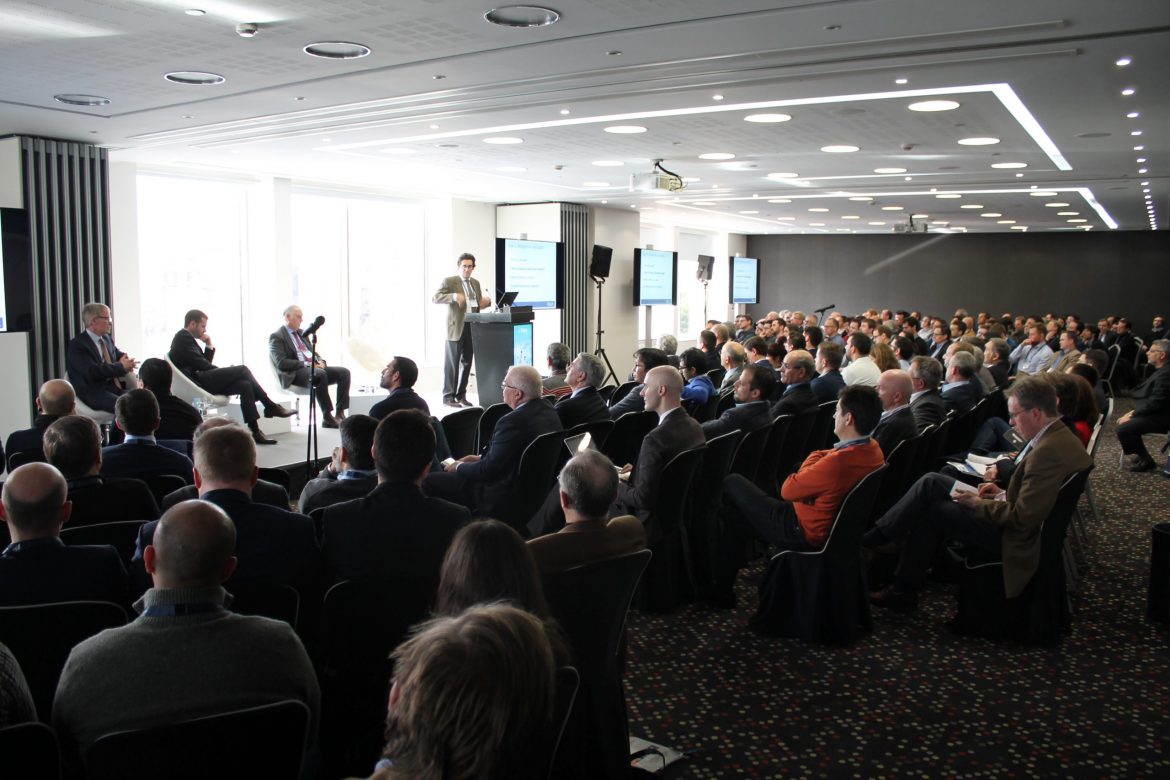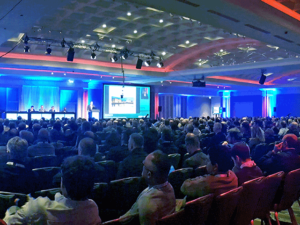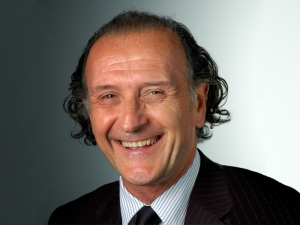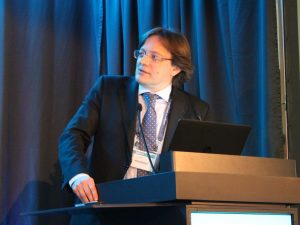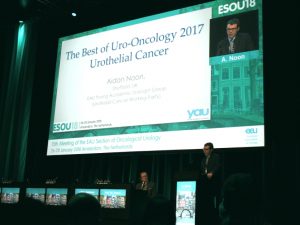For the first time at an ESOU meeting, the European School of Urology is offering a major oncology-related course. On the afternoon of the second day of ESOU17 in Barcelona, three hours were devoted to an intensive workshop-style course on the complications and management of patients undergoing cystectomy.
Prof. Noel Clarke (Manchester, GB) was one of the four ESU Faculty who presented, offered insights and led discussion during the course. Other speakers were ESU Chairman (and local organizer for ESOU17) Prof. Joan Palou (Barcelona, ES), Dr. Jose Maria Gaya Sopena (Barcelona, ES) and Prof. George Thalmann (Bern, CH), all surgeons with many hundreds of cystectomies under their belts.
The ESU Course was much larger than the ESU Courses offered at Regional Meetings or the Annual EAU Congress: the course was freely available to the delegates of ESOU17, and around 300 took the opportunity to take the intensive course. The course went through all steps of the cystectomy, from pre-op nutrition, bowel preparation, desired location of the stoma, through surgical complications and post-operative troubles like fever, leakage and antibiotics use.
“This ESU Course is embedded in the ESOU programme, so we’ve adjusted the workshop accordingly, to suit the larger audience,” Prof. Clarke explained shortly before the course started. “Often an ESU Course implies a smaller group for easier interaction. In this case, we are offering a longer course with topics within topics. The programme is highly detailed and shows the whole procedure step by step. Issues will be discussed that every professional will face in daily practice, things that arise that aren’t necessarily covered by journals, or textbooks or even plenary sessions.”
“Particularly taking into account the average patient, who might have multiple other problems associated with their general condition as well as specific problems related to bladder cancer. Heart disease, strokes, peripheral vascular disease, diabetes and so on. We identify these problems, and get the patient as fit as we possibly can before he or she undergoes the procedure. Sharing our approaches with the audience can really help with that. Surgeons all have unique tricks or experiences and that all comes out in a workshop.”
As the course got underway, the audience was continually polled on how they would approach certain cases, and which experiences they had in the course of their own operations. Questions and interruptions started coming regularly as the panel discussed pre-operative procedures. On the make-up of the audience, Prof. Clarke commented: “At the Annual EAU Congress or Regional Meetings you might get a lot more residents or young urologists, but seeing as most people at the ESOU meetings are experienced urologists in their own right, of which some will also be doing high-volume work, I expect the panel will learn as much from the audience as the other way around!”

